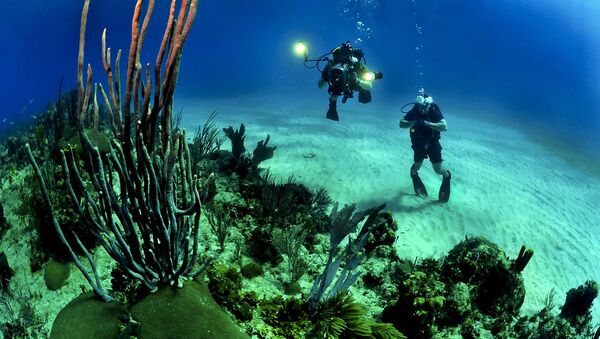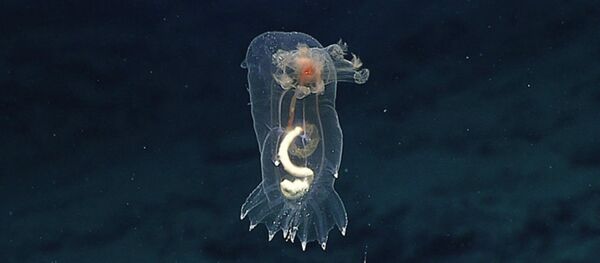While scientists have been studying the event for decades, little was known about what caused the disappearance of these species across the world's oceans — until now.
Scientists from the University of Nottingham, the University of Durham and the British Geological Society managed to crack the enigma by "reconstructing what the conditions of the water were back then," according to Dr Erin McClymont, one of the authors of the study.
"We looked at all the factors that could have influenced the event, such as temperature, or water corrosiveness — which could damage the organisms' shells," Dr McClymont told Sputnik.
They quickly realized that neither factors had directly triggered the foraminifera's demise. What had done it was some sudden change in the organisms' food source, a particular species of plankton (coccolithophores) that used to live on the ocean's surface before sinking to the bottom — and feeding the organisms living there.
What the study shows, according to Dr McClymont, is that "something happening on the ocean surface can impact things happening below, under 1000 meters of water. That's exactly what happened there."
Beyond that, the study is a cautionary tale on how everything in our oceans is deeply intertwined. And, although foraminifera's doom was not spelt by variations in temperature, that does not mean that global warming could not cause a similar catastrophe in the near future.
"We know that global warming and changes in carbon dioxide have impacted plankton greatly, and according to the International Panel on Climate Change some species of fitoplancton have started migrating," Dr McClymont told Sputnik.
"The real issue is: if plankton does change, our result shows that you might have an impact deep down, on the seafloor."
"And organisms living on the seafloor are parts of complex ecosystems, they affect how easily organic materials are cycled through the ocean," she added. "Such a change would have great repercussions on the whole oceanic ecosystem."





